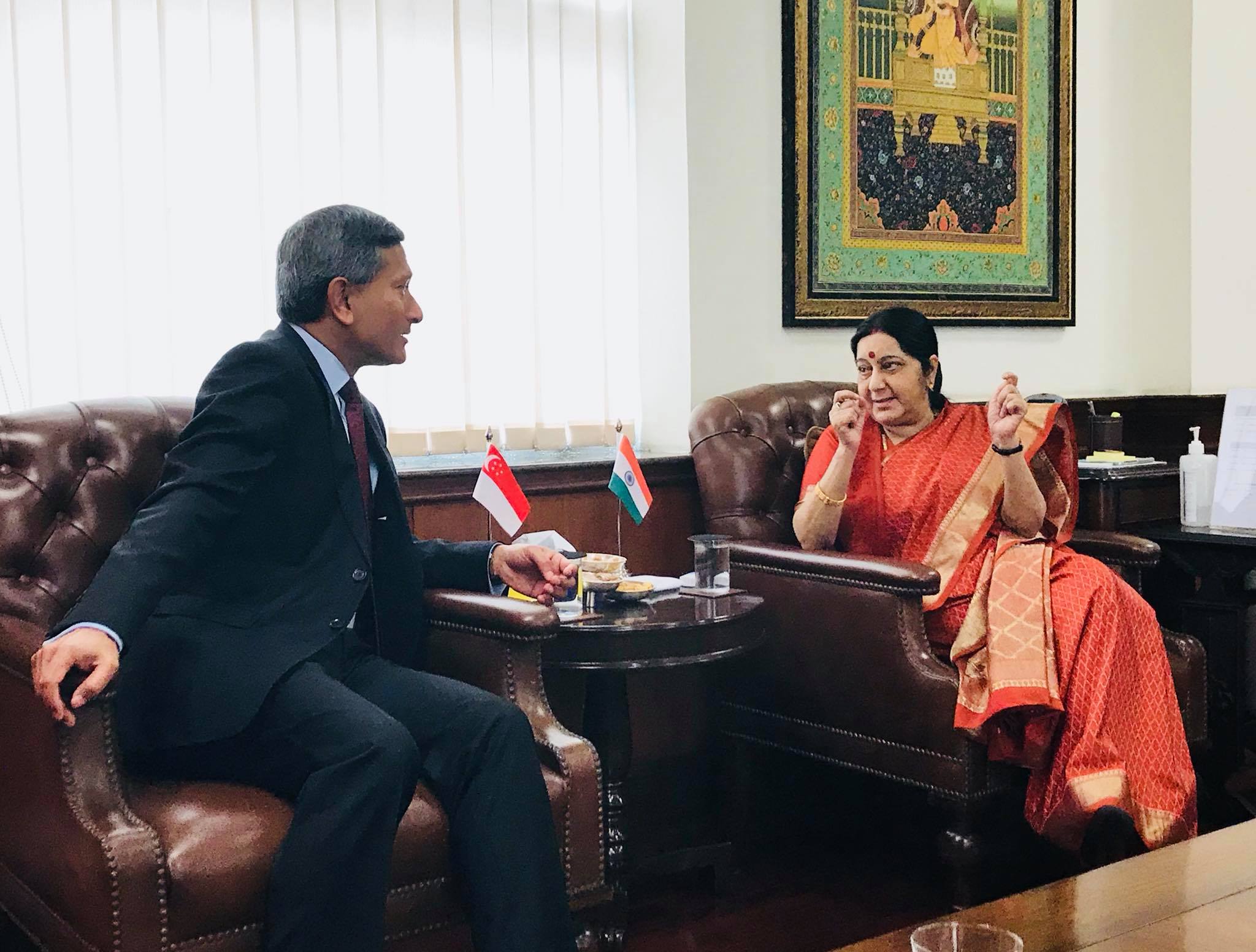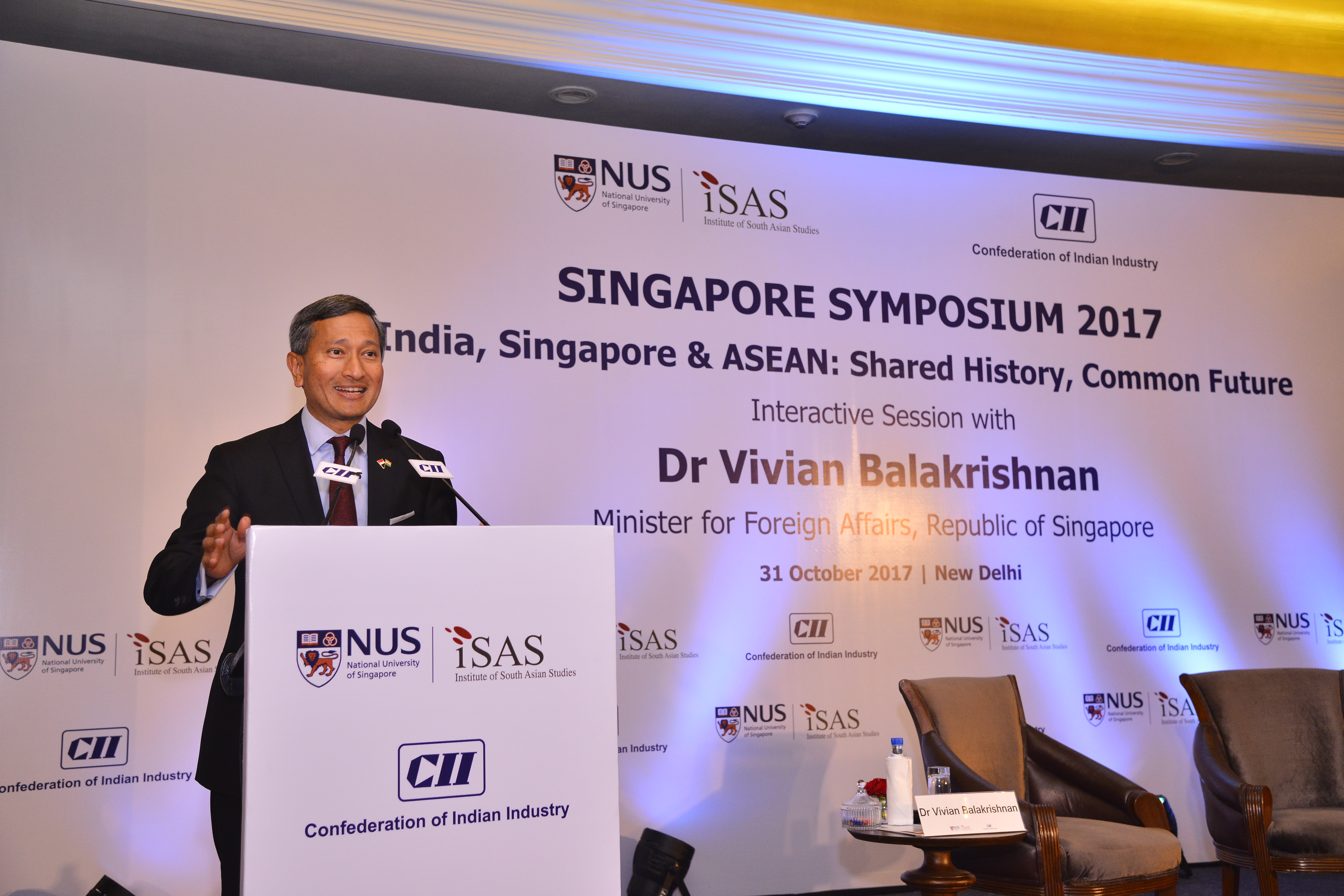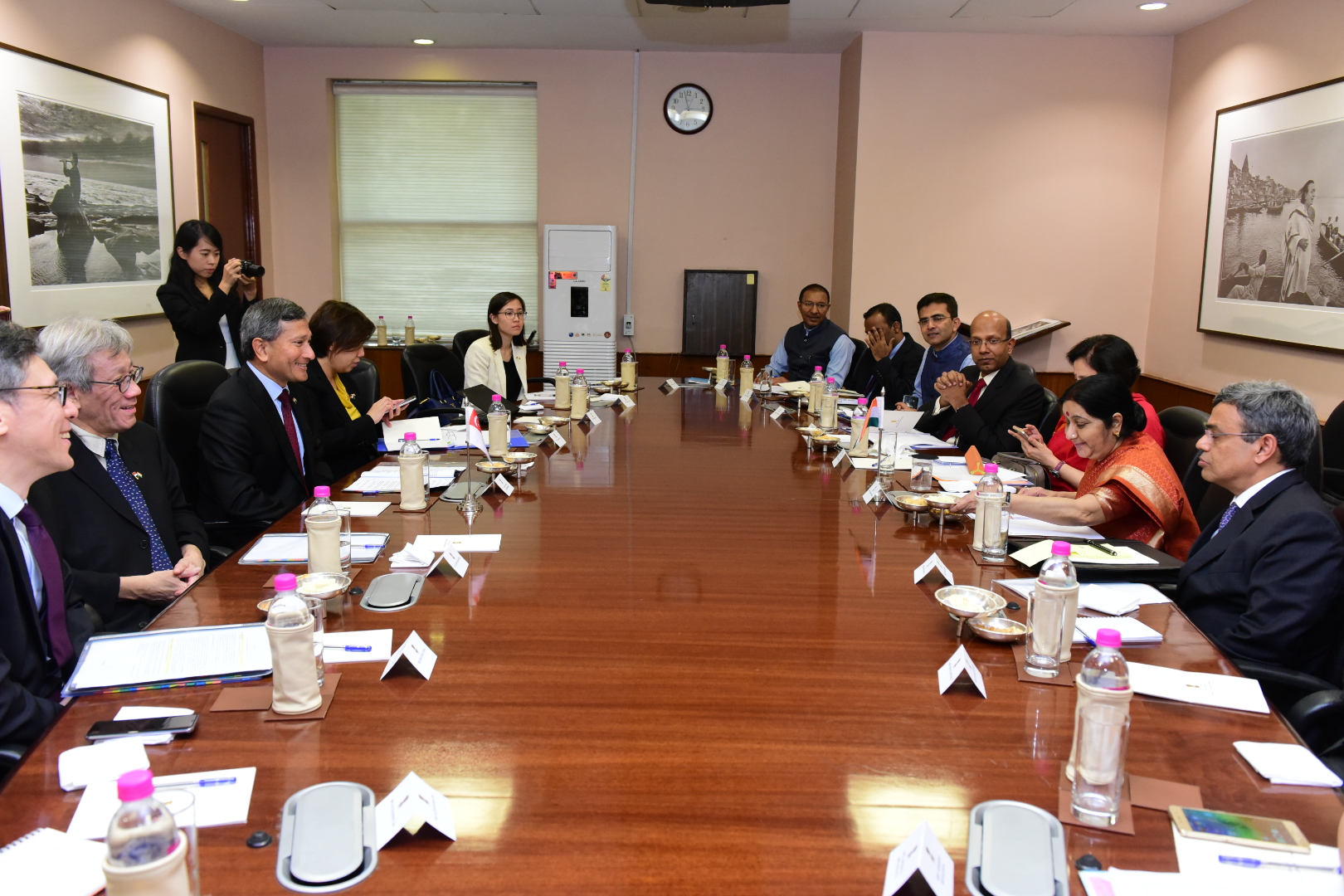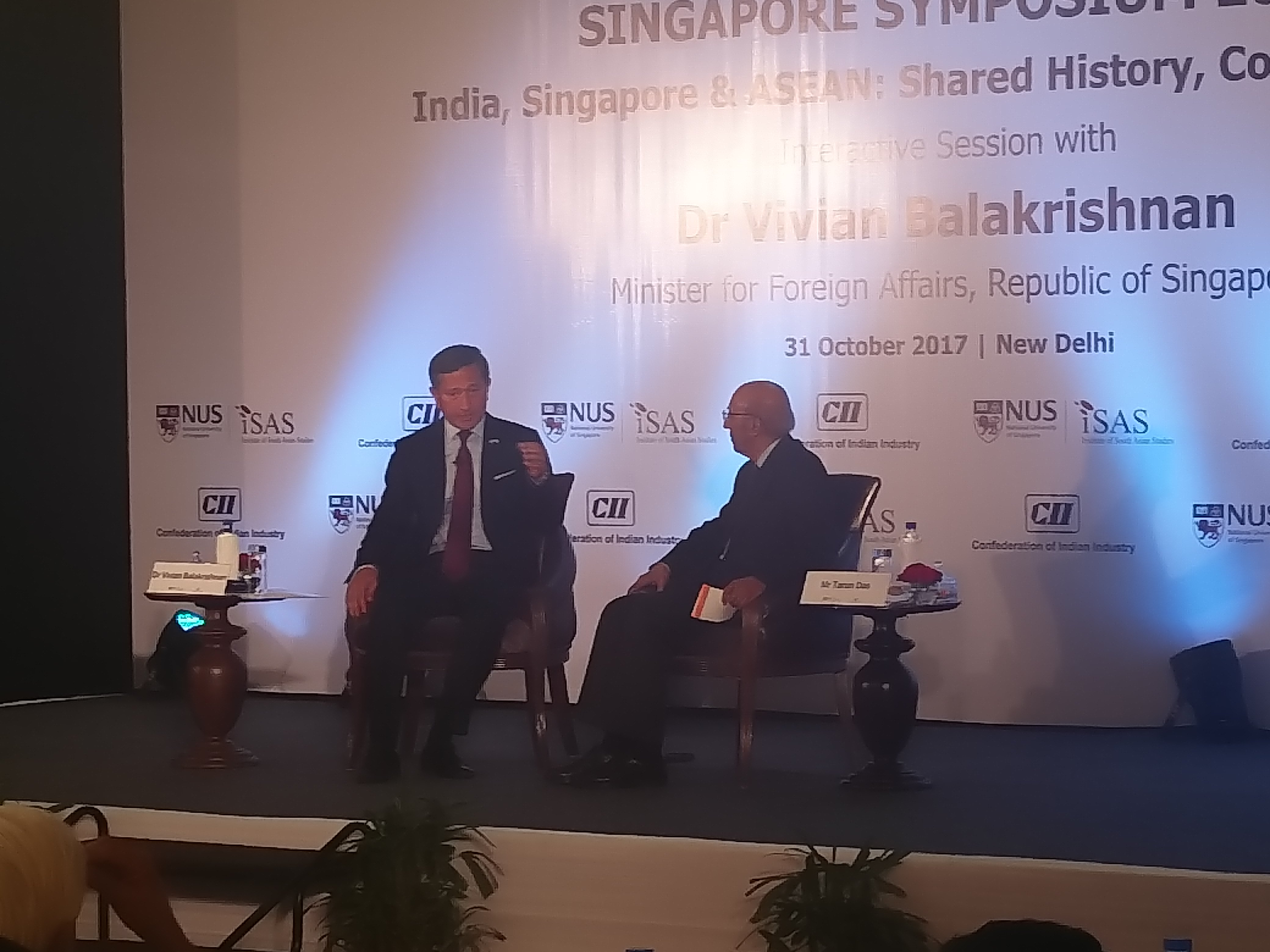Promising full support to expand India's role in the ASEAN grouping, Singapore's Minister for Foreign Affairs Dr Vivian Balakrishnan urged New Delhi to increase air connectivity with member countries to boost tourism, create jobs and deepen ties with its south-eastern neighbours.
Speaking at a symposium 'India, Singapore and ASEAN: Shared History, Common Future' organised in New Delhi by the Institute of South Asian Studies (ISAS) of National University of Singapore (NUS) and Confederation of Indian Industry (CII), Dr Balakrishnan said the vast tourism potential of India could be tapped if it increased connectivity to the ASEAN member countries in the South East by liberalising the aviation sector.
"Singapore Airlines has partnered Tata to form Vistara. All these investments are not done for political reasons, they are proof that we believe in India, its potential and future," he said.
Dr Balakrishnan said he continued to be amazed by the fact that a tiny nation such as Singapore was the second largest investor in a huge country such as India.
"In 2016, India was Singapore’s 10th largest trading partner and second largest foreign investor in India and largest foreign investor in China. Cumulative Singaporean FDI into India from the period 2000 to 2016 is USD 45.9 billion. This represents 16 per cent of Indian FDI," he said.
"We have significant investments across India; let me cite a few examples. Ascendas-Singbridge operates IT parks across India worth around USD 2 billion. PSA operates a container terminal in Mumbai worth USD 1.32 billion. Singapore Power operates a power plant in Andhra Pradesh worth USD 3 billion," Dr Balakrishnan said.
"The start of Singapore's India fever in the early 90s coincided with India's Look East policy. We were very fortunate that our second PM Goh Chok Tong believed especially in India and helped to light the fire of the Indian beacon," he said.
"India is a great ancient civilisation that has left an indelible legacy on South East Asia. Through trade and religious missions, India exerted a profound influence on us," the minister said.
"Within ASEAN, Singapore has been a keen advocate of India and India’s engagement in South East Asia. Singapore has always been a believer in India’s role in ASEAN for a variety of reasons; history, kinship, culture, language, trade and politics," he added.
"The 25th anniversary of ASEAN-India relations are being celebrated this year. This is timely because not only are we celebrating our shared history and reflecting on our current achievements but also charting a common future. Let me suggest three ideas to advance India-ASEAN cooperation which I believe Singapore as a maritime, aviation and financial hub can play a catalytic role," the Minister said.
Earlier, introducing the Symposium, Ambassador Gopinath Pillai, Chairman, ISAS-NUS, and Ambassador-at-Large, Ministry of Foreign Affairs, Singapore, said India-Singapore relations are sometimes compared to a love affair.
"It is good thing and not so good also. Because a love affair may be just moving along and lacking excitement. We should not allow it to slide into a lethargic mood and ensure love is evergreen," Pillai said.
Pointing out that there was a historical, linguistic and cultural homogeneity of India and its neighbours from Afghanistan to Cambodia, Dr Balakrishnan in his address said India's engagement In ASEAN was need of the hour and Singapore will always push for it.
"If you look at the scripts of South East Asian languages, you can see the Indian origin thick with Sanskrit influences. To take one example, the Thai alphabet created in 1283 is modelled on Sanskrit in part. Pre-modern India left profound influences on our culture, religion, language and businesses. The Indian influence re-emerged in our region during British Raj in the 19th Century. As Britain’s crown jewel and source of power in the far East, it should not surprise us that India was the springboard for the British to gain access to the South East region. Consequently, there were many immigrants who established the Indian diaspora in South-Est Asia and cities prospered from trade to and from and to India," Dr Balakrishnan said.
"Singapore served as a gateway for India’s interaction with the region, particularly because of our location. Indian migrants played a catalytic role in creating the modern commercial world of SE Asia in the late 19th and early 20th Century. And many Indians stayed behind to build new communities and countries when the colonial yoke was lifted," the minister said.
"Singapore remains a hub for India to do business, trade and interact with the region. We continue to build institutional mechanisms for cooperation in areas like trade, defence, finance and culture," he said.






